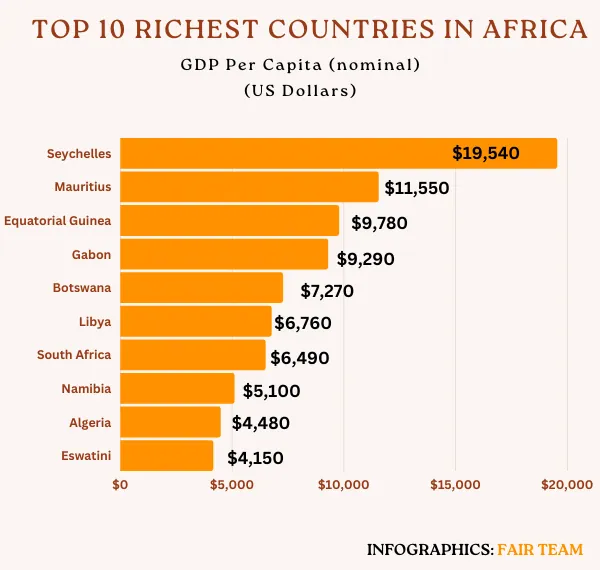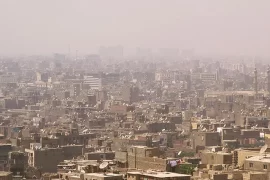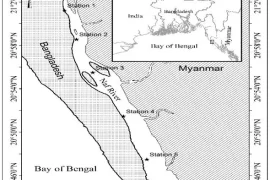Africa is a continent that boasts a rich cultural heritage and diverse economies. In recent years, several African countries have seen impressive economic growth, leading to an increase in their overall wealth. Today, we’ll be discussing the top 10 richest countries in Africa in 2023, based on their GDP per capita.
Ranking criteria
GDP per capita is a measure of a country’s economic output that accounts for its population size. It’s calculated by dividing the country’s total economic output by the number of people living in it. This metric provides a better understanding of how wealthy each citizen is on average, and it’s a useful indicator of a country’s economic development. To determine the top 10 richest countries in Africa, we’ve analyzed the GDP per capita data from the International Monetary Fund (IMF) for the year 2023. It’s important to note that while GDP per capita is a useful metric, it doesn’t necessarily reflect a country’s overall economic health or the distribution of wealth within the population.
List of the Top 10 richest countries in Africa
The top 10 richest countries in Africa are Seychelles, Mauritius, Equatorial Guinea, Gabon, Botswana, Libya, South Africa, Namibia, Algeria, and Eswatini.
Seychelles, the richest country in Africa
Key facts
- GDP per capita: $19,540 (IMF, 2023)
- Real GDP Growth (Annual Percent Change): 5.2 ( IMF, 2023)
- GDP, current prices (Billion USD): 2.13 (IMF, 2023
- Unemployment rate ( percent): 3 ( IMF, 2023)
- Population (millions of people): .1 (IMF, 2023)
Economic overview
Seychelles is an island nation located in the Indian Ocean, east of mainland Africa. Its economy is largely based on tourism and fishing, with the former accounting for more than 30% of the country’s GDP. Fish is the main export production of the country. Seychelles also has industries that process coconut and vanilla.
The government has made a concerted effort to develop other sectors such as financial services and international trade to diversify the economy. Seychelles is the least corrupt country in Africa.
Mauritius, the 2nd richest African country
Key facts
- GDP per capita: $ 11,550 (IMF, 2023)
- Real GDP Growth (Annual Percent Change): 5.4 ( IMF, 2023)
- GDP, current prices (Billion USD): 12.40 (IMF, 2023)
- Unemployment rate ( percent): 7.4 ( IMF, 2023)
- Population (millions of people): 1.26 (IMF, 2023)
Economic overview
Mauritius is another island nation located in the Indian Ocean, east of Madagascar. The country’s economy is diverse, with key industries including tourism, textiles, and sugar.
The rapid economic development achieved by Mauritius since its independence in 1968 is widely recognized as the ‘Mauritius Miracle’.
The government has also been making efforts to develop other sectors such as information and communications technology (ICT) and financial services. The country boasts of having one of the largest exclusive economic zones in the world, with an area of 2.3 million square kilometers.
Mauritius is at the top of the 10 safest African countries.
Equatorial Guinea, the 3rd Wealthiest African Country
Key facts
- GDP per capita: $ 9,780 (IMF, 2023)
- Real GDP Growth (Annual Percent Change): -3.1 ( IMF, 2023)
- GDP, current prices (Billion USD): 15.58 (IMF, 2023)
- Unemployment rate ( percent): N/ A ( IMF, 2023)
- Population (millions of people): 1.54 (IMF, 2023)
Economic overview
Equatorial Guinea, a small country located in Central Africa, is the 3rd richest country in Africa.
Equatorial Guinea’s economy relies heavily on oil and gas exports, which make up over 90% of the country’s total exports. The discovery of significant oil reserves in 1996 sparked remarkable economic growth in the nation. Equatorial Guinea stands as the 9th largest oil producer in Africa, with a production of 88,000 bpd.
The government has been trying to diversify the economy by promoting agriculture and tourism. Besides fuel, the three other major GDP components of Equatorial Guinea are forestry, farming, and fishing.
Gabon, 4th richest African country
Key facts
- GDP per capita: $9,290 (IMF, 2023)
- Real GDP Growth (Annual Percent Change): 3.7 ( IMF, 2023)
- GDP, current prices (Billion USD): 21.55 (IMF, 2023)
- Unemployment rate ( percent): N/A ( IMF, 2023)
- Population (millions of people): 2.19 (IMF, 2023)
Economic overview
Gabon is located in Central Africa and is known for its abundant natural resources, including oil, timber, and minerals. The country’s economy is heavily dependent on oil exports, which account for more than 80% of the country’s total exports.
Botswana, 5th richest African country
Key facts
- GDP per capita: $7,270 (IMF, 2023)
- Real GDP Growth (Annual Percent Change): 4 ( IMF, 2023)
- GDP, current prices (Billion USD): 18.67 (IMF, 2023)
- Unemployment rate ( percent): N/A ( IMF, 2023)
- Population (millions of people): 2.5 (IMF, 2023)
Economic overview
Botswana is located in Southern Africa and is known for its diamond industry, which accounts for more than 70% of the country’s total exports. The country’s economy is also driven by tourism, which has been growing steadily in recent years.
Libya, the 6th Wealthiest African Country
Key facts
- GDP per capita: $ 6,760 (IMF, 2023)
- Real GDP Growth (Annual Percent Change): 17.9 ( IMF, 2023)
- GDP, current prices (Billion USD): 43.75 (IMF, 2023)
- Unemployment rate ( percent): N/A ( IMF, 2023)
- Population (millions of people): 6.85 (IMF, 2023)
Economic overview
Libya is located in North Africa and is known for its vast oil reserves, which account for more than 95% of the country’s total exports. However, political instability and conflict have severely impacted the country’s economy in recent years.
South Africa, 7th Wealthiest African Country
Key facts
- GDP per capita: $6,490 (IMF, 2023)
- Real GDP Growth (Annual Percent Change): 0.1 ( IMF, 2023)
- GDP, current prices (Billion USD): 399.02 (IMF, 2023)
- Unemployment rate ( percent): 34.7 ( IMF, 2023)
- Population (millions of people): 61.53 (IMF, 2023)
Economic overview
South Africa has the largest gross domestic product (GDP) among all African countries, which indicates the size and strength of its economy. This is due to several factors, including the country’s abundant natural resources, which have historically been important sources of wealth and economic activity. Gold, platinum, and diamonds, in particular, are significant contributors to South Africa’s economy, as they are major exports that generate foreign exchange earnings.
In addition to its natural resources, South Africa’s economy is driven by several other industries, including finance, real estate, and manufacturing. The finance and real estate sectors are particularly important, as they provide critical services such as banking, insurance, and property development. Meanwhile, manufacturing contributes to the country’s economic diversification by producing goods for both domestic consumption and export.
Namibia, the 8th Wealthiest African Country
Key facts
- GDP per capita: $ 5,100 (IMF, 2023)
- Real GDP Growth (Annual Percent Change): 3.2 ( IMF, 2023)
- GDP, current prices (Billion USD): 13.36 (IMF, 2023)
- Unemployment rate ( percent): N/A ( IMF, 2023)
- Population (millions of people): 2.64 (IMF, 2023)
Economic overview
Namibia is a country located in southwestern Africa. The country is known for its diverse wildlife and rich cultural heritage. Its economy relies on agriculture, mining, and tourism. It faces challenges such as poverty, unemployment, and climate change. Political stability is a key factor in its economic growth and development. But, corruption and political interference remain concerns. Nonetheless, Namibia has made progress in improving the lives of its citizens.
Algeria, the 9th richest country in Africa
Key facts
- GDP per capita: $4,480 (IMF, 2023)
- Real GDP Growth (Annual Percent Change): 2.6 ( IMF, 2023)
- GDP, current prices (Billion USD): 206.01 (IMF, 2023)
- Unemployment rate ( percent): 11.4 ( IMF, 2023)
- Population (millions of people): 45.973 (IMF, 2023)
Economic overview
Algeria’s economy is heavily dependent on its vast oil and natural gas reserves, which account for over 90% of its export earnings and approximately 60% of its budget revenues. It has been an OPEC member since 1969. Currently, Algeria produces around 1.1 million barrels of oil per day.
Algeria’s private sector is very weak.
Eswatini, the 10th Wealthiest African Country
Key facts
- GDP per capita: $4,150 (IMF, 2023)
- Real GDP Growth (Annual Percent Change): 2.8 ( IMF, 2023)
- GDP, current prices (Billion USD): 4.82 (IMF, 2023)
- Unemployment rate ( percent): N/A ( IMF, 2023)
- Population (millions of people): 1.163 (IMF, 2023)
Economic overview
Eswatini, formerly known as Swaziland, is a small landlocked country located in Southern Africa. The country’s economy is largely driven by its agricultural sector, which employs the majority of the population and contributes a significant portion of the country’s GDP.
Summary
The top 10 richest countries in Africa in 2023 are :
- Seychelles ( GDP Per Capita 19,540 USD)
- Mauritius ( GDP Per Capita 11,550 USD)
- Equatorial Guinea ( GDP Per Capita 9,780 USD)
- Gabon ( GDP Per Capita 9,290 USD)
- Botswana ( GDP Per Capita 7,270 USD)
- Libya ( GDP Per Capita 6,760 USD)
- South Africa ( GDP Per Capita 6,490 USD)
- Namibia ( GDP Per Capita 5,100 USD)
- Algeria ( GDP Per Capita 4,480 USD)
- Eswatini ( GDP Per Capita 4,150 USD)
Africa is a continent of diverse economies, cultures, and histories. While many countries on the continent face economic challenges, there are some that have managed to build strong and prosperous economies. As outlined in the article, the top 10 richest countries in Africa are home to some of the continent’s most dynamic economies. They can boast impressive growth rates, natural resources, and a thriving business environment.
However, income inequality remains a pressing issue in many of them. There is a need for continued efforts to promote inclusive economic growth.








